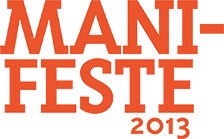Information storage in DNA
The amount of information that humans produce and want to store is increasing exponentially. The amount of digital information that people want to archive is also growing, but at present essentially no long-term archiving of digital information is taking place. This is because all current digital storage media require a constant cycle of refreshing both the storage medium and the ‘reading’ and ‘writing’ hardware.
Recent genome science-inspired advances in the technologies for reading and writing DNA led us to look at the possibility of using DNA as a digital archive medium. DNA has a 3-billion year proven pedigree as a stable information carrier, with individual 10,000-year-old DNA molecules routinely recovered from historical samples. Safe DNA storage conditions are easily maintained at low cost, and the ability to read DNA fragments will surely survive for as long as there are technologically-advanced humans inquisitive about the working of living organisms’ genomes.
In our proof-of-concept experiment, we showed how existing DNA technologies could be used to store and recover approximately 750kb of digital information in a manner that could be extrapolated to global data scales, incorporating modern methods such as error correcting codes for data integrity. This talk will describe this experiment, and will speculate on the future of DNA as a digital storage medium.
Art-Science Think Tank: Friday, June 14

